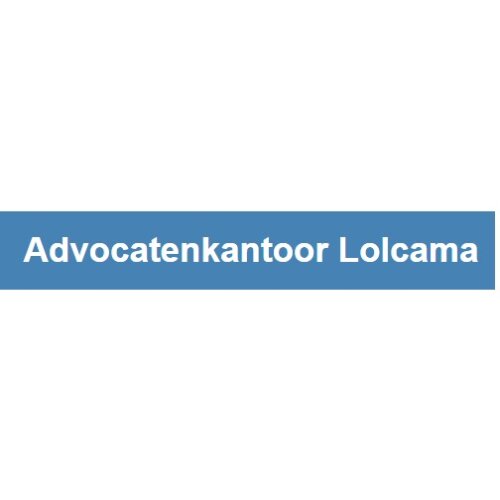Best Labor Law Lawyers in Netherlands
Share your needs with us, get contacted by law firms.
Free. Takes 2 min.
Or refine your search by selecting a city:
List of the best lawyers in Netherlands
About Labor Law in Netherlands
Labor Law in the Netherlands is a comprehensive framework that governs the rights and responsibilities of employers and employees. It encompasses various aspects such as employment contracts, wages, working hours, health and safety standards, and termination procedures. This system is designed to ensure fair treatment and balance the interests between employers and employees while promoting a healthy and productive work environment. Dutch labor laws are known for being particularly employee-friendly, providing robust protection and promoting equality and inclusiveness in the workplace.
Why You May Need a Lawyer
There are multiple situations where seeking legal advice in the field of Labor Law could be beneficial:
- Employment Contract Disputes: Understanding complex clauses or resolving disagreements over contract terms may require professional advice.
- Unlawful Dismissal Claims: If you believe your termination was unjust or discriminatory, a lawyer can help evaluate your case and pursue legal recourse.
- Workplace Harassment or Discrimination: Addressing violations of your right to a safe and respectful work environment can be challenging without legal support.
- Negotiation of Employment Terms: Legal expertise can be invaluable when negotiating terms and conditions, particularly when accepting a new position or challenging pay inequities.
- Compensation and Benefits Disputes: Disagreements over salaries, bonuses, or benefits may necessitate legal intervention.
- Collective Bargaining and Union Issues: Labor lawyers can also assist with matters related to collective bargaining and negotiations involving trade unions.
Local Laws Overview
The Netherlands has a structured and protective set of labor laws. Key elements include:
- Employment Contracts: Must be agreed upon either verbally or in writing and contain essential information like job description, compensation, and working hours.
- Minimum Wage: Dutch law mandates a statutory minimum wage that is adjusted bi-annually to account for inflation and economic conditions.
- Working Time and Leave: Employees are entitled to rest breaks, annual paid leave, and limits on work hours to ensure wellness and productivity.
- Health and Safety: Employers are obliged to maintain a safe working environment, with detailed regulations found in the Working Conditions Act.
- Termination of Employment: Dismissal processes are highly regulated, with laws on notice periods, severance payments, and necessary permissions for termination.
- Non-Discrimination Policies: Strong anti-discrimination laws protect workers from unfair treatment based on gender, age, ethnicity, religion, and other factors.
Frequently Asked Questions
What are my rights regarding vacation days?
Employees in the Netherlands are entitled to a minimum of four times their weekly working hours worth of vacation days annually. Employers often offer more, based on conditions in the employment contract or collective labor agreements.
Can I be fired without notice?
No, employers must follow legal protocols when terminating employment, which typically include a notice period or obtaining authorization from a competent body like the Employee Insurance Agency (UWV) or a court.
What constitutes as unfair dismissal?
Unfair dismissal occurs when an employee is terminated without a valid reason as stipulated by Dutch law, such as economic reasons, performance issues, or misconduct, and without following the correct procedures.
How is the minimum wage determined?
The minimum wage in the Netherlands is determined by the government and is subject to bi-annual adjustments. It varies based on age and is published on an official platform to ensure compliance.
Can my employer change my job description?
Employers can change job descriptions only with reasonable cause and typically require the consent of the employee. Significant changes might necessitate an adjustment to the employment contract.
Are non-compete clauses enforceable?
Non-compete clauses are restricted by Dutch law to protect employees. They are valid only in indefinite-term contracts and must bear a clearly stated reason to be enforceable.
Do I have rights if I suspect workplace harassment?
Yes, employees have the right to report workplace harassment without fear of retaliation. Employers are legally required to take necessary actions to prevent and address harassment.
How do overtime regulations work?
Overtime is generally compensated in accordance with the employment contract or collective agreement. Employees are not obliged to work overtime unless explicitly agreed upon.
Can an employer terminate my contract during probation?
Yes, both employee and employer can terminate the employment contract during the probation period without stating the reason, provided it is done in writing, adhering to the probation agreement.
What steps should I take if my payment is delayed?
If your payment is delayed, you should notify your employer in writing. If the issue persists, you may involve a lawyer or trade union representative to discuss potential legal actions.
Additional Resources
Here are several resources and organizations that can assist individuals seeking advice on labor issues in the Netherlands:
- Ministry of Social Affairs and Employment: Offers guidelines and regulations on labor laws.
- Employee Insurance Agency (UWV): Provides resources on labor-related disputes and unemployment benefits.
- Legal Aid Board (Raad voor Rechtsbijstand): Assists with finding affordable legal aid services.
- Trade Unions: Often provide support and representation for employment issues.
- Nederlands Juristen Comité voor de Mensenrechten (NJCM): Can offer guidance and assistance on employment-related human rights issues.
Next Steps
If you need legal assistance in the realm of labor law in the Netherlands, here are some steps to take:
- Gather all relevant documents, such as employment contracts, communication records, and pay slips.
- Identify the specific issue or dispute you are facing and note any instances or evidence that support your case.
- Contact legal services, such as a lawyer who specializes in labor law, using resources like the Legal Aid Board for recommendations.
- Consider reaching out to trade unions if applicable, for additional advice and potential representation.
- Schedule a consultation to discuss your situation and receive guidance on possible legal actions or solutions.
By taking proactive steps and utilizing the resources available, you can better navigate labor-related legal challenges in the Netherlands.
Lawzana helps you find the best lawyers and law firms in Netherlands through a curated and pre-screened list of qualified legal professionals. Our platform offers rankings and detailed profiles of attorneys and law firms, allowing you to compare based on practice areas, including Labor Law, experience, and client feedback.
Each profile includes a description of the firm's areas of practice, client reviews, team members and partners, year of establishment, spoken languages, office locations, contact information, social media presence, and any published articles or resources. Most firms on our platform speak English and are experienced in both local and international legal matters.
Get a quote from top-rated law firms in Netherlands — quickly, securely, and without unnecessary hassle.
Disclaimer:
The information provided on this page is for general informational purposes only and does not constitute legal advice. While we strive to ensure the accuracy and relevance of the content, legal information may change over time, and interpretations of the law can vary. You should always consult with a qualified legal professional for advice specific to your situation.
We disclaim all liability for actions taken or not taken based on the content of this page. If you believe any information is incorrect or outdated, please contact us, and we will review and update it where appropriate.
Browse labor law law firms by city in Netherlands
Refine your search by selecting a city.















